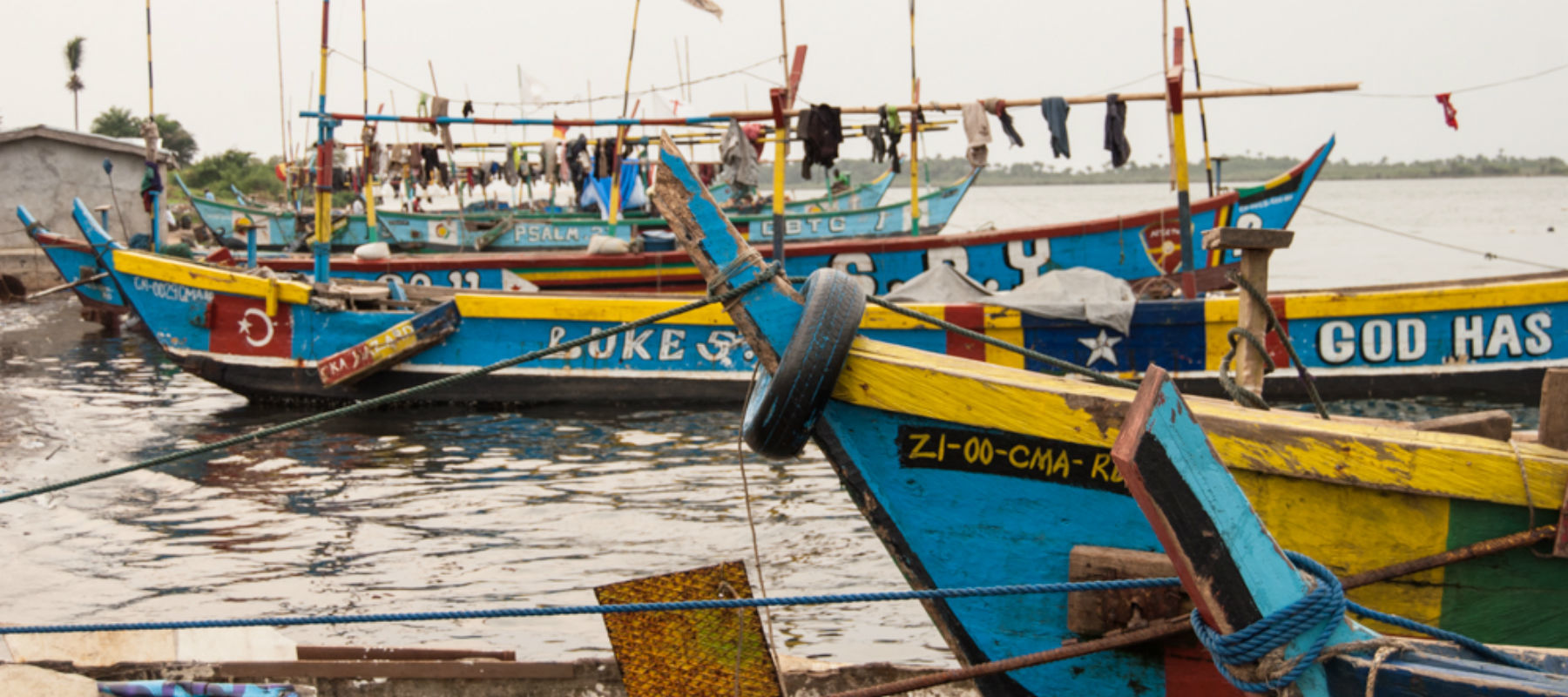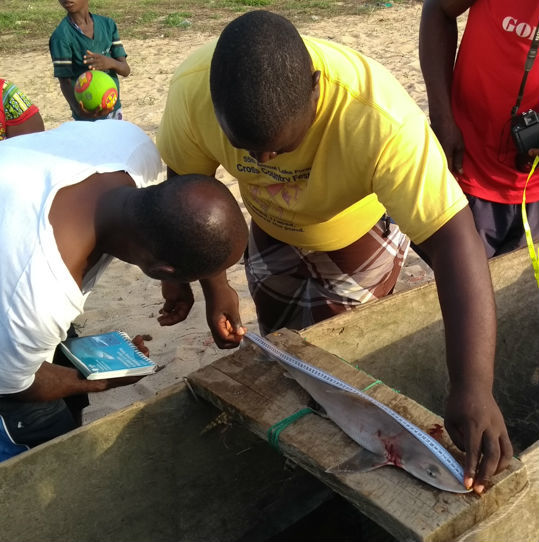An average of 100 million sharks are fished globally each year for food.
In West Africa shark and ray populations are in decline.
EJF's shark and ray conservation
EJF is working to secure long term change for the protection of shark and rays in Liberia. By protecting sharks and rays, we will also be ensuring healthy seas and sustainable fisheries.
We will be:
- Raising awareness of the importance of sharks and rays
- Running a citizen science programme to train community members in data collection
- Investigating the size of the shark fin trade in Liberia
- Working with the Government to develop management plans for their shark and ray fisheries
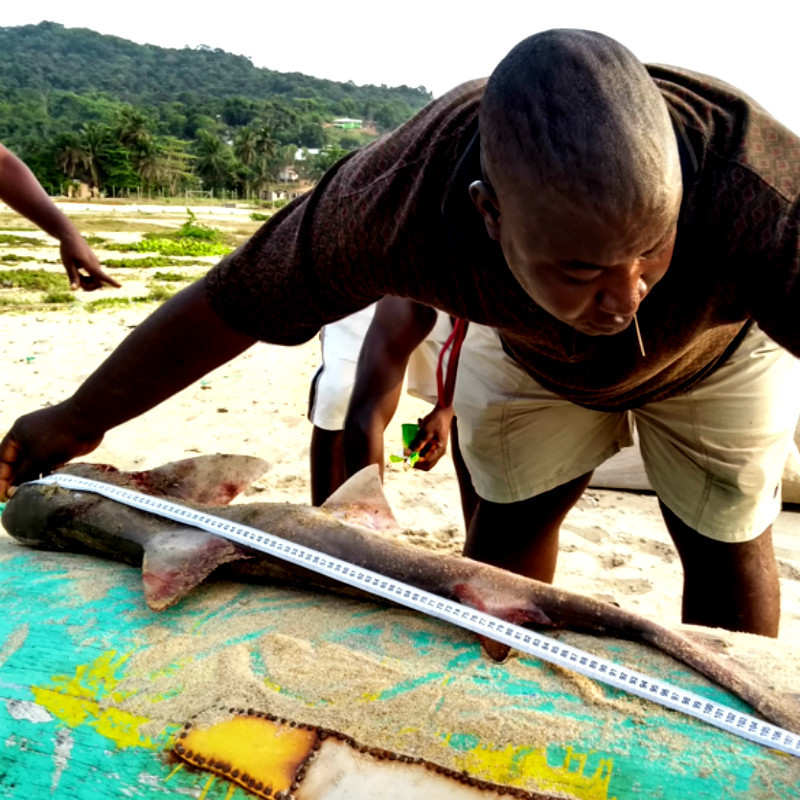
By initiating a community-science project in 5 key fishing centres across Liberia, EJF's community-based monitoring will help provide much–needed information on catches.
Engaging Liberian fishing communities to better understand their usage of sharks and rays, we can help to establish an informed, fair and practical fishery management plan.
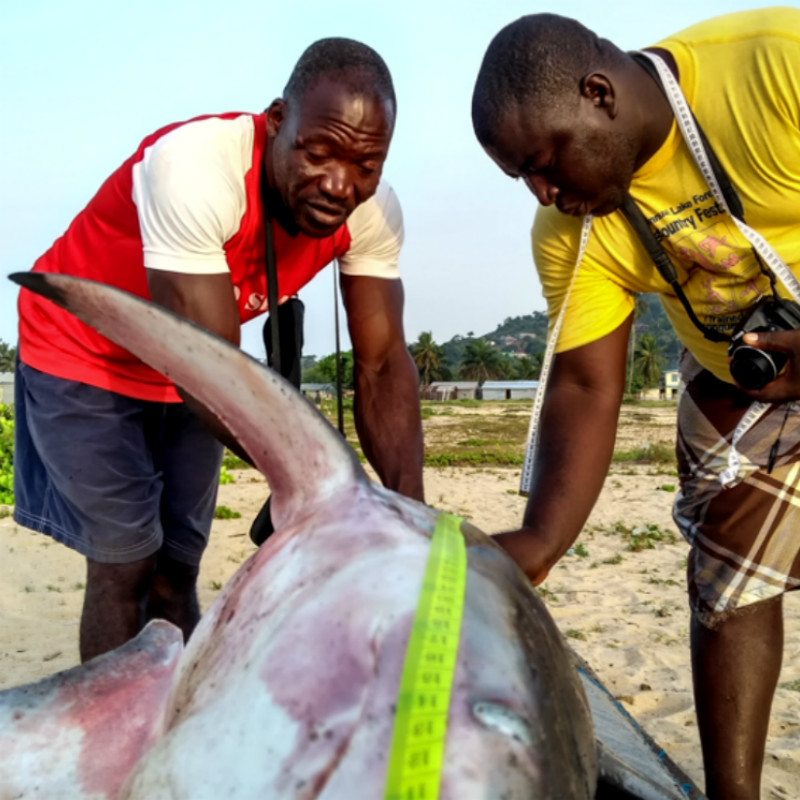
Sharks and rays in Liberia - the current situation
There are currently no fishery laws in Liberia preventing the targeting of sharks and rays, even endangered species such as the Great Hammerhead and the vulnerable Chilean Devil Ray.
EJF is documenting the trade in sharks and rays as well as ensuring that there is a clear understanding of which sharks and rays, and how many, are being caught. This data does not exist, making it impossible to create effective protections. By building this understanding, we will be creating the knowledge necessary to make effective decisions.
EJF is raising awareness of the importance of shark and ray conservation in Liberia, and training fishing communities to collect this data themselves.
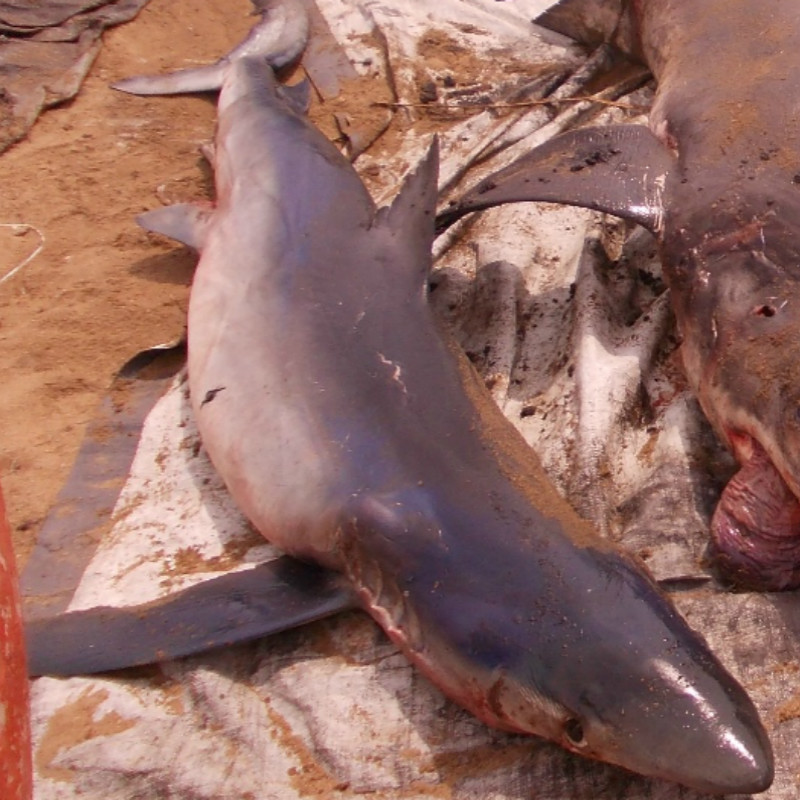
There are no laws in Liberia controlling shark and ray fishing. Nearly a quarter of all shark and ray species found worldwide are now threatened with extinction.
There exists little scientific information on sharks and rays caught in Liberia and this makes managing and conserving these vulnerable populations very difficult.
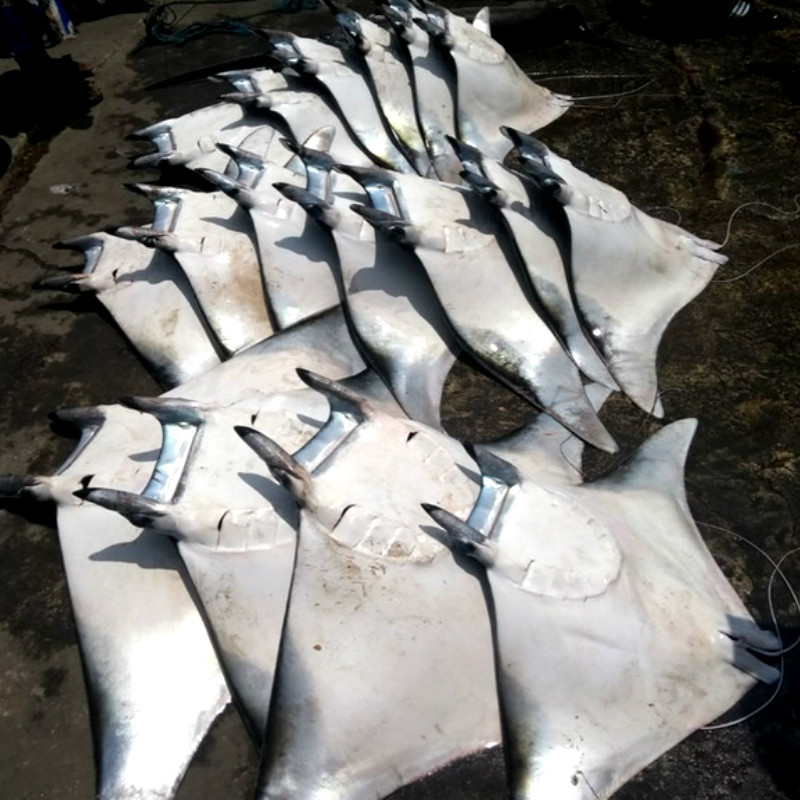
Liberia's shark and ray populations - vital for healthy oceans
Decreasing shark populations cause serious problems for the health of the oceans, and in turn for the communities that depend on them. If sharks are fished to extinction, then this would have serious consequences for the balance of the ecosystem and the health of the seas. As top predators, they keep other species at reasonable numbers, and ensure ecosystems are balanced and healthy.
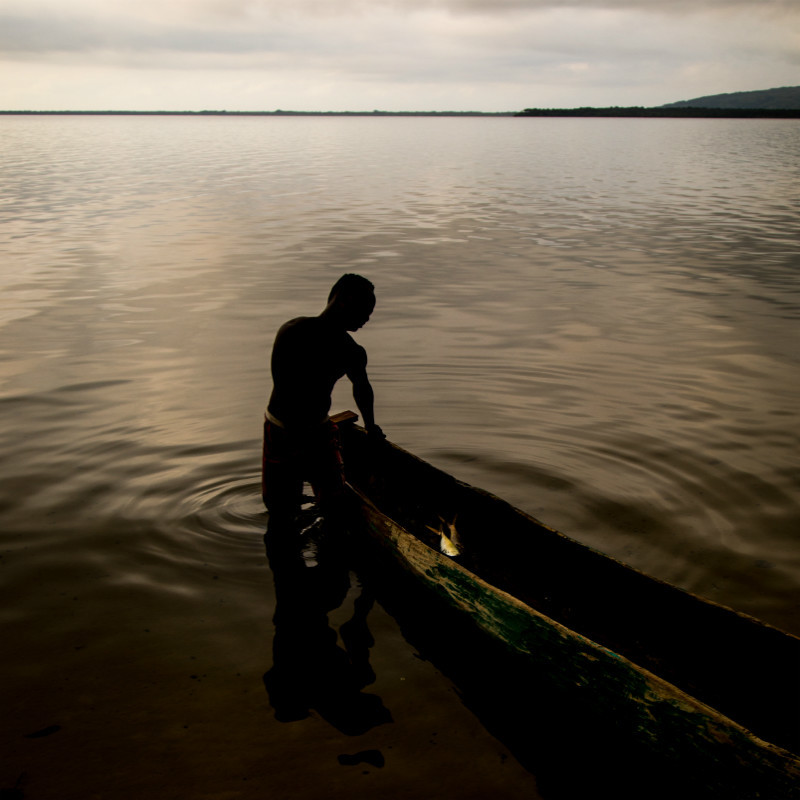
We don’t know how far it is going to go or what the major problem is, we want to find out. This is what we are discussing today, how is it that it has gone this far?
Anthony Aidoo, local fisher
Conserving sharks and rays in Liberia can help in keeping the country’s fisheries sustainable, and keep providing vital food, incomes and livelihoods for thousands of Liberians that rely upon them.
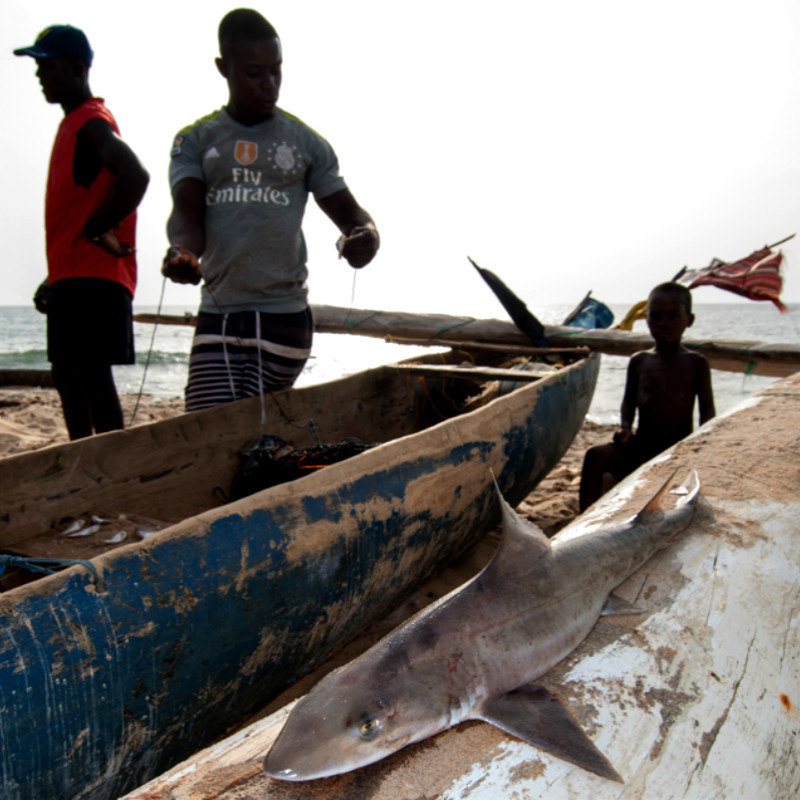
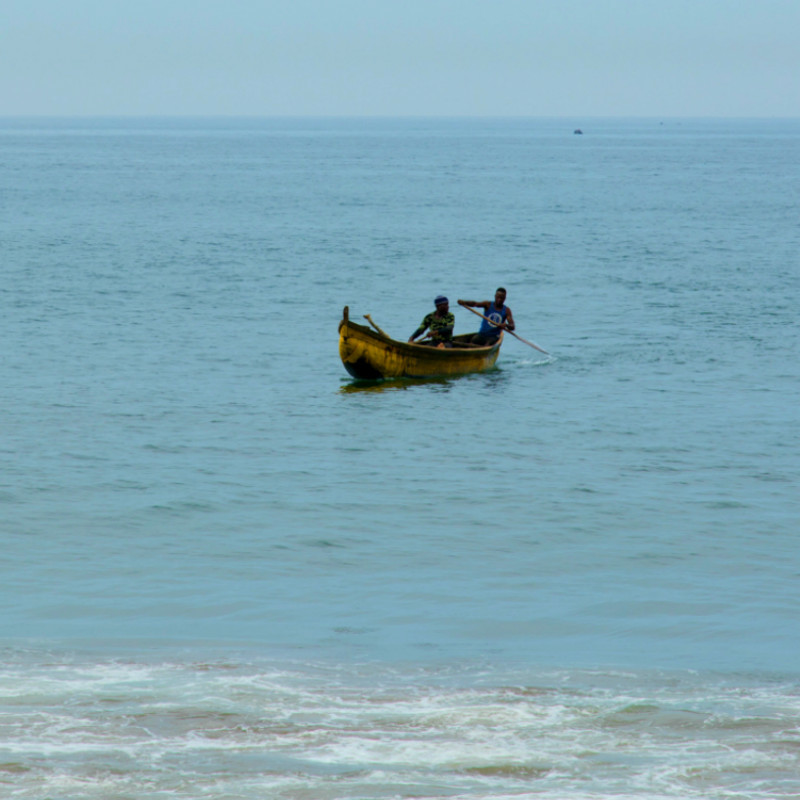
In everything we are doing now, we have to think for the future, our children. So if any solution will protect the fishes for future generations, we have to back it.
Daniel Yeobah, local fisher
EJF's Oceans Campaign
EJF’s Oceans Campaign aims to protect the millions of people that depend on our oceans and to protect the magnificent and varied wildlife that call them home.
SIGN UP FOR OUR EMAILS AND STAY UP TO DATE WITH EJF
